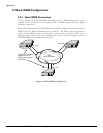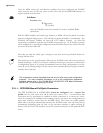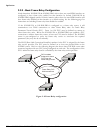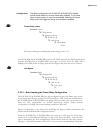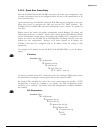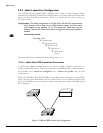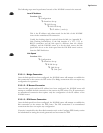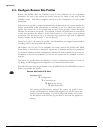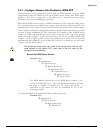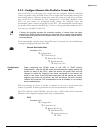
Applications
IOLINK-520 & IOLINK-PRO Installation & Applications Guide —
2.23
2.2.2.3 - Quick Start Frame Relay
Since the IOLINK-520 & IOLINK-PRO auto-learns the frame relay configuration, only
a couple of parameters need to be configured before the unit is fully operational as an IP
router for frame relay.
Upon initial start up, the IOLINK-520 & IOLINK-PRO are pre-configured to query the
frame relay service to auto-learn the LMI type and the PVC DLCI numbers. The
IOLINK-520 & IOLINK-PRO will then automatically create a remote site profile for
each PVC.
Within each of the remote site profiles automatically created Bridging, IP routing, and
IPX routing are all set to “enabled”. Because each of these options are enabled by default
and the automatically created remote site profiles will establish a PVC connection to the
remote site routers, the IOLINK-520 & IOLINK-PRO will bridge and IPX route data
without any user configuration. Because an IP router requires an IP address, the
IOLINK router must be configured with an IP address before IP routing is fully
operational.
To configure an IP address for the IOLINK-520 & IOLINK-PRO, use the IP address
option.
IP Address
Location: Main
!
Configuration
!
Interfaces Set-up
! LAN Set-up
!
LAN IP Set-up
!
IP Address / mask size
If security is required for the PVC connection refer to the Configure PPP Security section
for information on setting the security passwords and user names for PPP.
By default, PPP is disabled for each of the newly created remote site profiles. If PPP
encapsulation is desired, for example to use security, the PPP encapsulation option
should be set to “enabled”. By default, when PPP encapsulation is enabled multilink is
also enabled.
PPP Encapsulation
Location:
Main
!
Configuration
!
Interfaces Set-up
!
WAN Set-Up
!
Remote Site Set-Up
!
Edit Remote Site
!
Connection Set-up
!
PPP
Enabled
"
""
"
"
""
"




